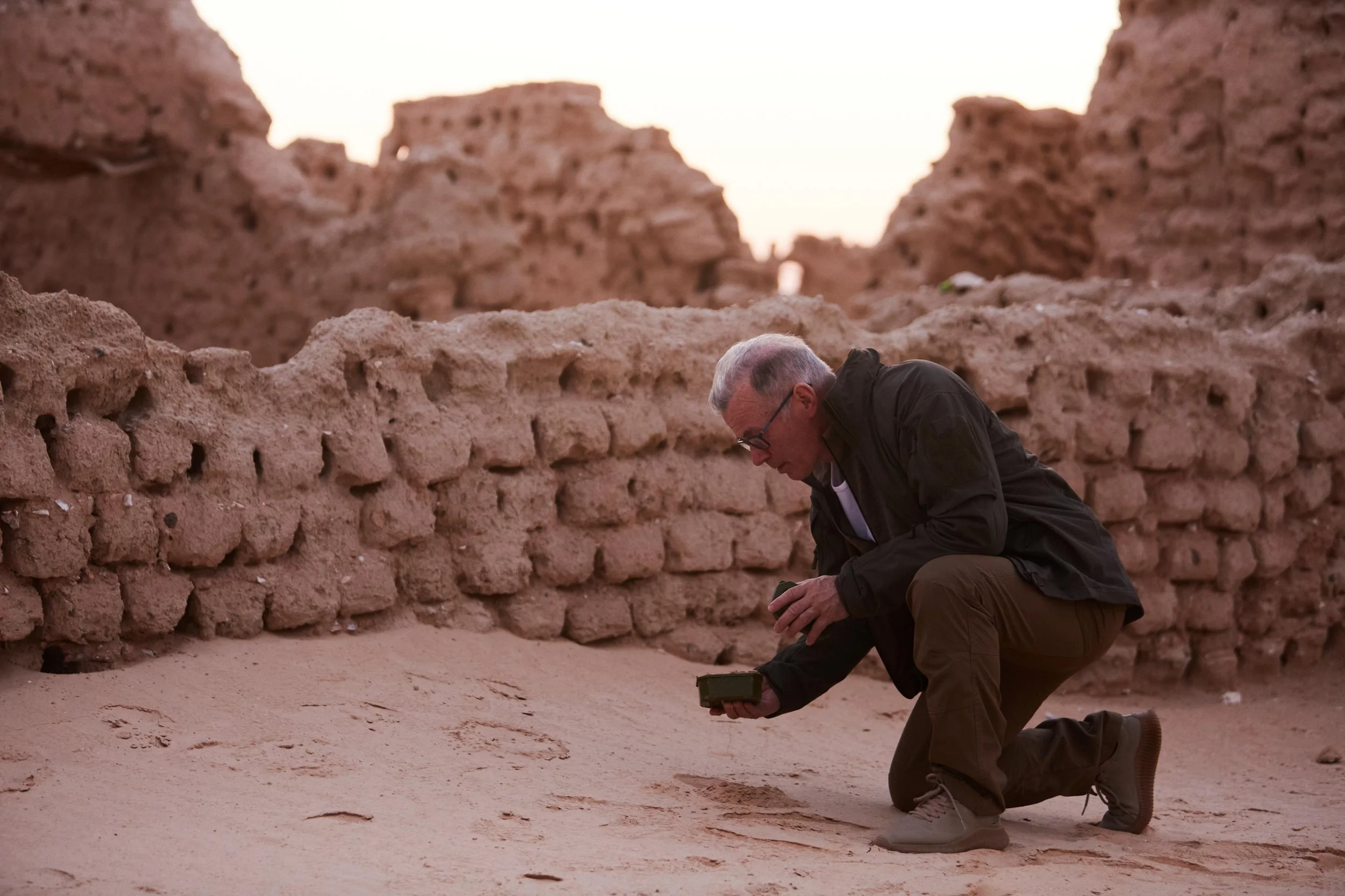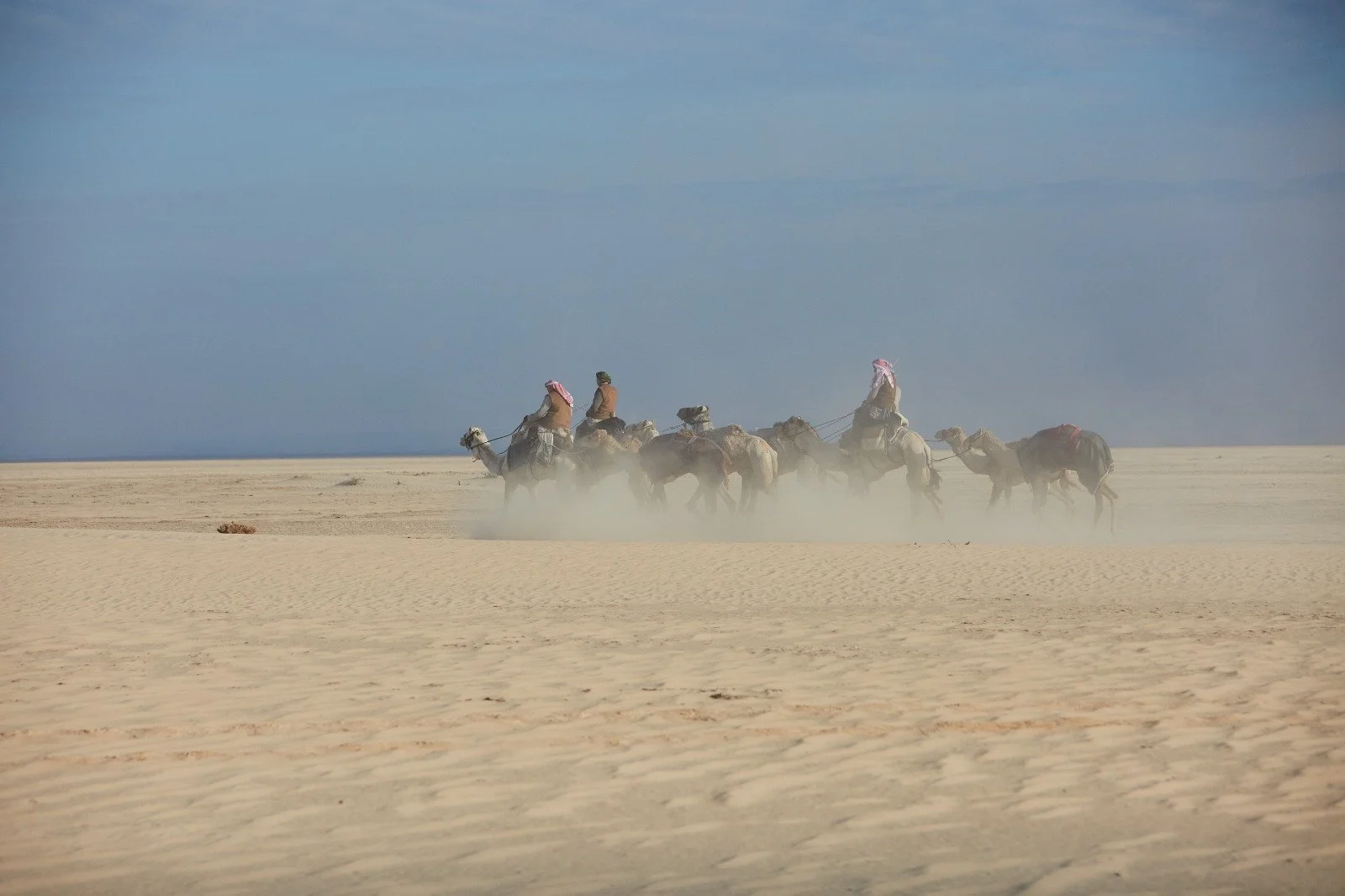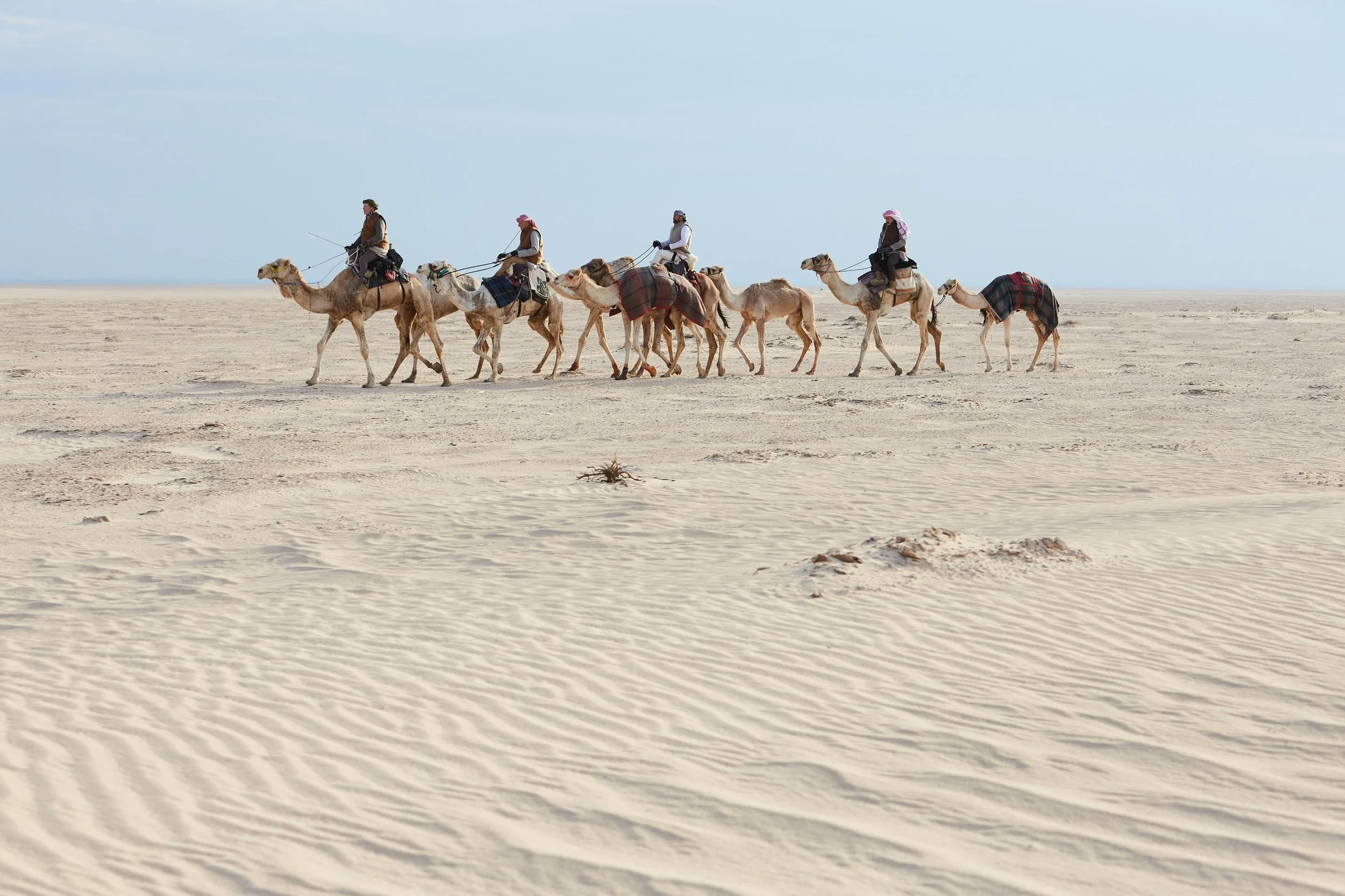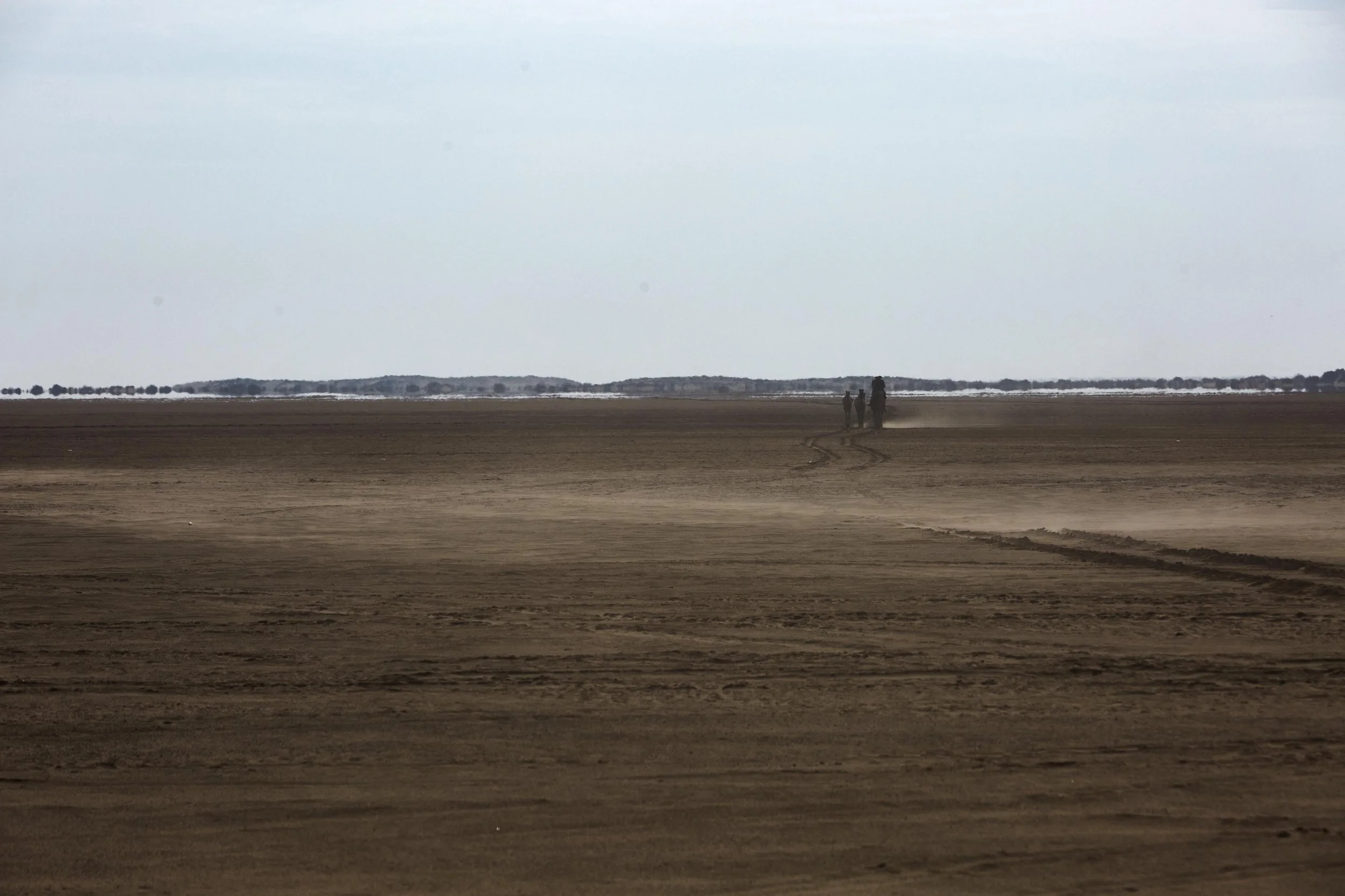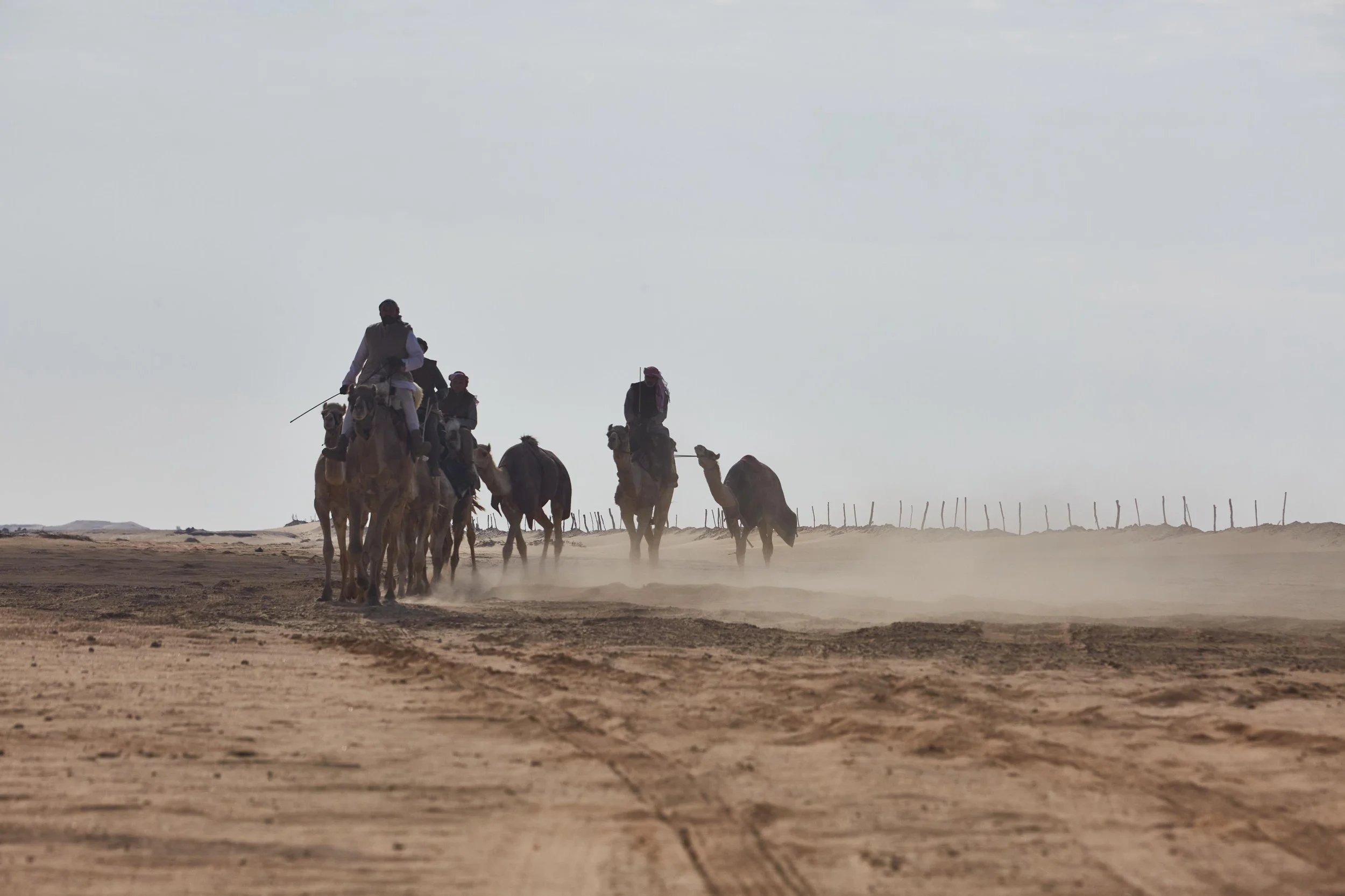Waking up Happy in Wadi Sorhan? – A Big Mistake
Being on an expedition such as this one only served to convince me further that I was right about one of my few theories about people. That is, there are only two sorts of individuals in this world. Those who are in the habit of waking up happy and those who are in the habit of waking up unhappy.
I can only imagine that if you were the latter and had to wake up morning after morning in freezing temperatures and put on riding clothes ingrained with the smell of camel, then the physical uphill struggle that we'd faced so far would have been a bridge too far for an unhappy mindset.
To that end, it had become pretty apparent to me that the riders and the support team, all of whom were volunteers, and from whom sounds of humour would come within an hour of waking, must all be the "happy" variant. Perhaps this was why the team had been so cohesive?
Additionally, the dark humour of the military would creep in every now and again. The old maxim of "If I don't insult you, I don't like you" was alive and well and each day, someone would be the butt of one joke or another.
On the morning of the 13th leg, the chuckles were about Peter W, who'd just left us. The evening before, just for a bit of fun (our fun), Rory had suggested removing him from the Trek WhatsApp group to see if we could get a rise out of him. It seemed Rebecca was the only objector, so as Rory processed the exclusion process, the rest of us had giggled like little schoolgirls as we imaged Peter’s disdain. By morning we wanted to know whether we'd got a bite from Peter, and we were delighted to learn that we had!
All cruel, perhaps, but I'd learned long ago that such stuff helped morale and bonding in challenging situations. Of course, as soon as it was mission accomplished, in that we'd possibly upset Peter, then he'd be reinstated to the group, and another victim in the team would be the target.
Moreover, that morning, everyone was in good spirits because tomorrow was a rest day, and after that we were past the halfway mark in terms of days. So, except for the second Hejaz Mountain crossing four days out from Aqaba, it should all be pretty much downhill from here. Also, we knew we had just two more riding days on the Saudi camels before we'd make the switch to the Jordanian camels. We could all sense that our camels had worked hard; they'd been adequately fattened before the trek but now were visibly thinner. They had just 100 km to push, or so we thought.
Setting off from the Camp, having eaten so well at Prince Musaed's majlis the night before also added to the feel-good factor. Rory and Ged were in the lead Defender and would scout ahead, Rebecca and Henry would remain close as our backup.
Our initial route took us through "baby's head" terrain, which was soft underfoot, but meant that the camels would have to weave between the small clumps, which wasn't a relaxing trot. After about half an hour, the terrain on the right opened up into a vast flat desert, with a layer of fine sand above a hard surface. It was perfect for trotting, plus Rory and Ged, as pathfinders, had headed out across this plain. It seemed this would take us to the next Camp in superfast time.
We stopped on the flat plain at about 1100, and by this time, Oliver had joined us in another Defender for coffee. As we enjoyed the ten-minute respite and emptied our bladders, Captain Sa'ad from the Royal Reserve Rangers came to us in his specially fitted FJ Cruiser. "You are too far to the north", he told us. "You need to come to the left and cross that ridge line".
We tried to call Rory. We could see his tracks across the desert, but his VHF was out of range. Oliver offered to range forward and see what he could figure out. The track as plotted and followed by Rory had seemed to be correct; however, it now appeared to have pulled us too far north, and the ridge line to the south had risen considerably.
We didn't know it at the time, but the transposition of the route into the navigation system had skipped a lane, and our trust in it was about to kick us in the arse.
By 1300, it was time to stop for lunch, and we'd veered towards the south, following the high ground, looking for a way through. There was certainly no way through up ahead and, having realised the error, Rory and Ged had doubled back from the high ground to try to find a way that we could get to them. Meanwhile, Oliver had basically done a U-turn up a re-entrant and came back to report that there was a small track on which both the camels and vehicles could get through. The only problem is that it was 180 degrees from the direction in which we should be travelling!
We were learning first-hand why Lawrence had so hated this place. The massive volcanic boulders were peppered all over the hillsides, just a foot or so apart. Impossible for camels or vehicles to penetrate, even if the riders had dismounted.
I took the only decision left open to me, we'd have to take the certain crossing route, rather than risk trying to find one further up the ridge. We rode back up the re-entrant that would take us to "Oliver's pass". I knew now that for every kilometre we rode; another would be added to the total. The ride up the pass was into the sun — exhausting and morale-sapping.
Eventually, we popped out onto a flat cut path, and I figured we could make some serious ground trotting on this. However, by now it was about 4:30 and by riding 15 kilometres to the southeast, we'd added 30 kilometres to what was supposed to be a 50 kilometres day.
At around 5:30, we stopped for a pee break, and I asked Henry, “How far?” when he looked at his feet, I knew from experience this was not good. “You have a long way to go. Can I leave it at that?” he asked, not looking me in the eye.
"Fifteen K?" I asked.
"Probably further?" H replied.
A couple of expletives ensued, but we all knew that we weren't going to get it done talking about it, so we mounted up and rode on with the sun setting to our left. This was turning out to be a real endurance test, and all we could do was trot on the flat and downhill and walk uphill to preserve the camels' energy. They were doing really well considering.
As is the way of the desert, we lost light quickly and pushed along the path that was the only way that Lawrence could have possibly come. I reflected that he and his group had to ride through the night on frequent occasions. This was not a problem for the camels, for they have much better night vision than humans.
We were about three kilometres from the Camp when we ran up against a farm fence. We had to turn hard left, and after about a kilometre, we came to another fence that pushed us north once again. We picked up a track with a large bank on the left-hand side. By now, it was past 8pm, and the team had been in the saddle (shedad) for over twelve hours. All of us must have been hurting, but the silence in the team told me all had switched to "endurance mode", something many former military personnel will be familiar with.
We'd slowed to a walk and after about 30 minutes, trapped by fences on either side, we saw lights ahead that we assumed must be the Camp; we were wrong.
It was Rory with the Royal Reserve Rangers. There was another series of farm fences blocking our way, and they explained the only way to get to the Camp would be to ride the camels along a cut path to Highway 65, follow that road for four kilometres and then cut back up another path to the Camp. I calculated that it would be 12 km to cover 3 km, and riding along the roadside at night would be just too dangerous.
I took the decision that we would leave the camels where they were, and the Bedouin would remain with them for the rest of the day. The rest of the team could remain at the Camp as planned, but the riders would be taken to a small local hotel to shower, rest and clean their, by now, filthy clothes, and that is what happened.
That night, having ridden over 80 kilometres, each rider got to take his first shower in 13 days and sleep in a bed; additionally, all the clothes were laundered. The following day, the support team turned up in waves and used the same rooms to shower while the riders relaxed and drank coffee. The rest day was sorely needed and earned. It had never been a certainty and would have been sacrificed if we hadn't maintained the schedule. Still, that evening we returned to the Camp, which was in the shadow of the ruins of the Al Samhan Palace, where we gathered the third pot of sand that we would take to Lawrence's grave when we returned to the UK.
At the end of the rest day, a sweeter-smelling team gathered around the campfire. The day's respite had been a welcome tonic for all. Tomorrow we would head back to the camels and ride them for the last time on the final leg in Saudi Arabia. After that, we'd have just 400 kilometres, 10 more sleeps and a wake-up to crack.

